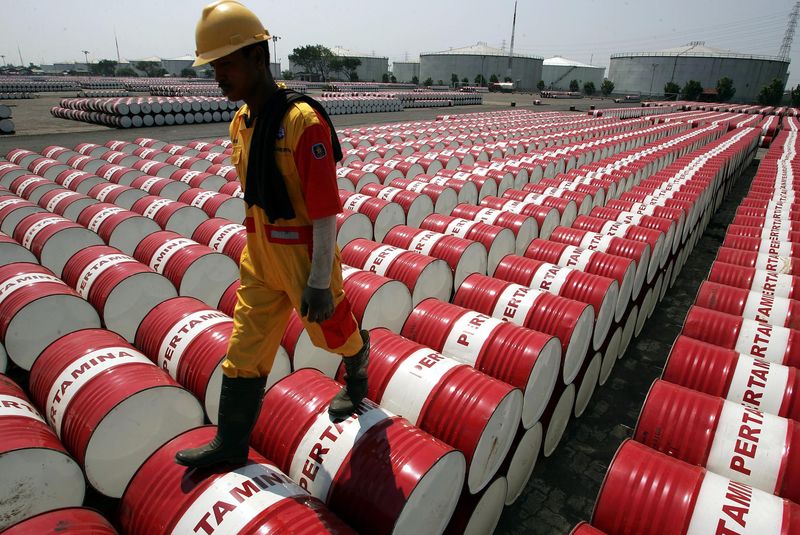Investing.com - Oil prices extended gains in North American hours on Wednesday, rising to the strongest levels of the session after data showed that crude supplies in the U.S. fell for the fourth week in a row.
Crude oil for November delivery on the New York Mercantile Exchange rose 64 cents, or 1.43%, to $45.31 a barrel by 10:35AM ET (14:35GMT). Prices, which were at around $45.40 prior to the release of the inventory data, spiked to $45.77 immediately after the report.
The U.S. Energy Information Administration said in its weekly report that crude oil inventories fell by 1.882 million barrels in the week ended September 23. Market analysts' expected a crude-stock gain of 3.0 million barrels, while the American Petroleum Institute late Tuesday reported a supply drop of 752,000 barrels.
Supplies at Cushing, Oklahoma, the key delivery point for Nymex crude, decreased by 631,000 barrels last week, the EIA said.
Total U.S. crude oil inventories stood at 502.7 million barrels as of last week, which the EIA considered to be “historically high levels for this time of year”.
The report also showed that gasoline inventories increased by 2.027 million barrels, compared to expectations for a gain of 178,000 barrels.
For distillate inventories including diesel, the EIA reported a decline of 1.915 million barrels.
Elsewhere, On the ICE Futures Exchange in London, Brent oil for December delivery tacked on 62 cents, or 1.3%, to $47.12 a barrel as investors waited to see if any kind of oil output deal can be salvaged from a meeting of major oil producers in Algeria.
OPEC members, led by Saudi Arabia and other big Middle East crude exporters, such as Iran and Iraq, will meet non-OPEC producer Russia on the sidelines of the International Energy Forum in Algeria at 14:00GMT (10:00AM ET) Wednesday.
There were hopes that major global oil producers could agree to a possible last-minute output freeze deal that would support the market.
However, according to market experts, chances that the meeting would yield any action to reduce the global glut appeared minimal. Instead, most believe that oil producers will continue to monitor the market and possibly postpone freeze talks to the official OPEC meeting in Vienna on November 30.
An attempt to jointly freeze production levels earlier this year failed after Saudi Arabia backed out over Iran's refusal to take part of the initiative, underscoring the difficulty for political rivals to forge consensus.
